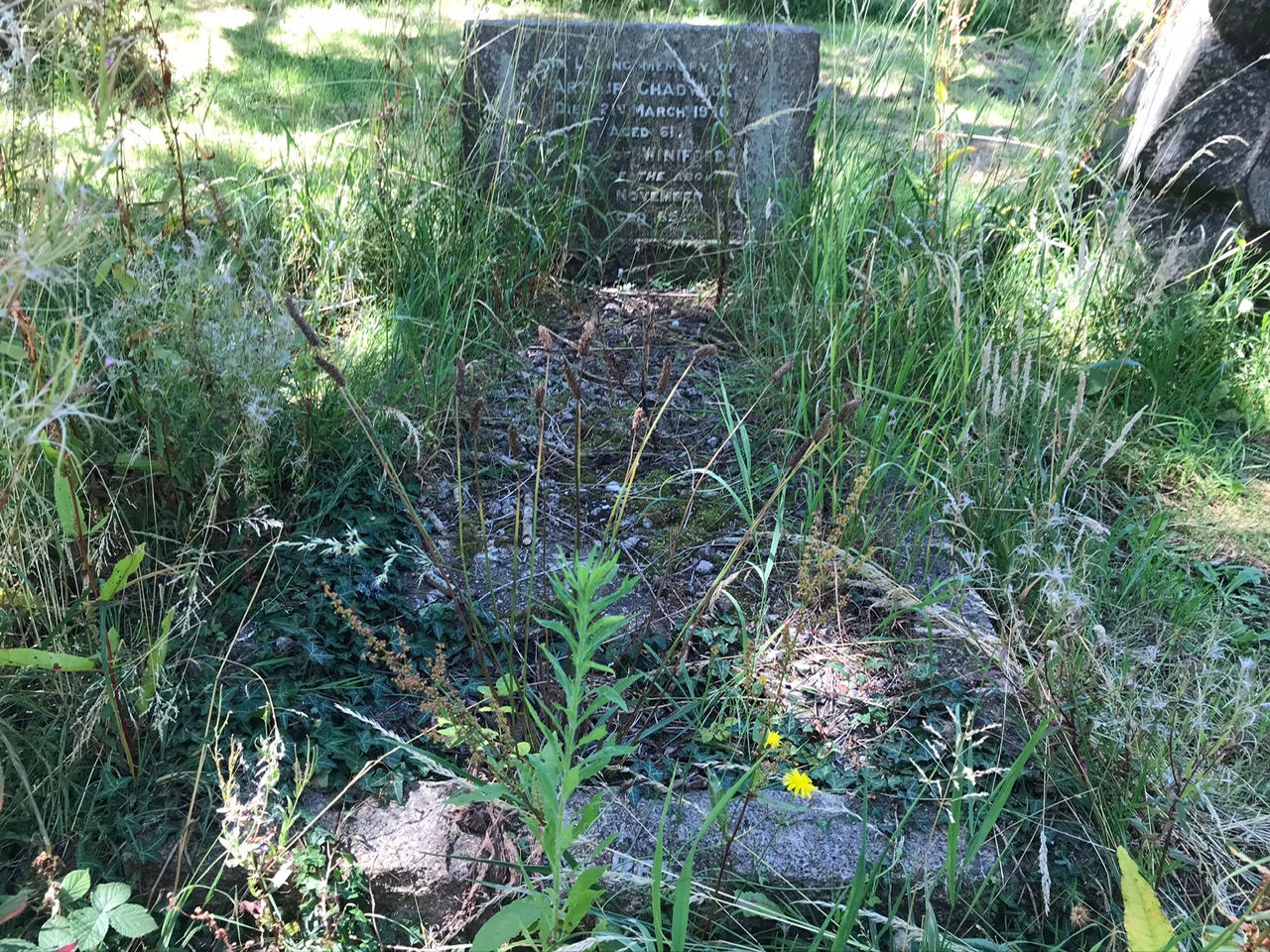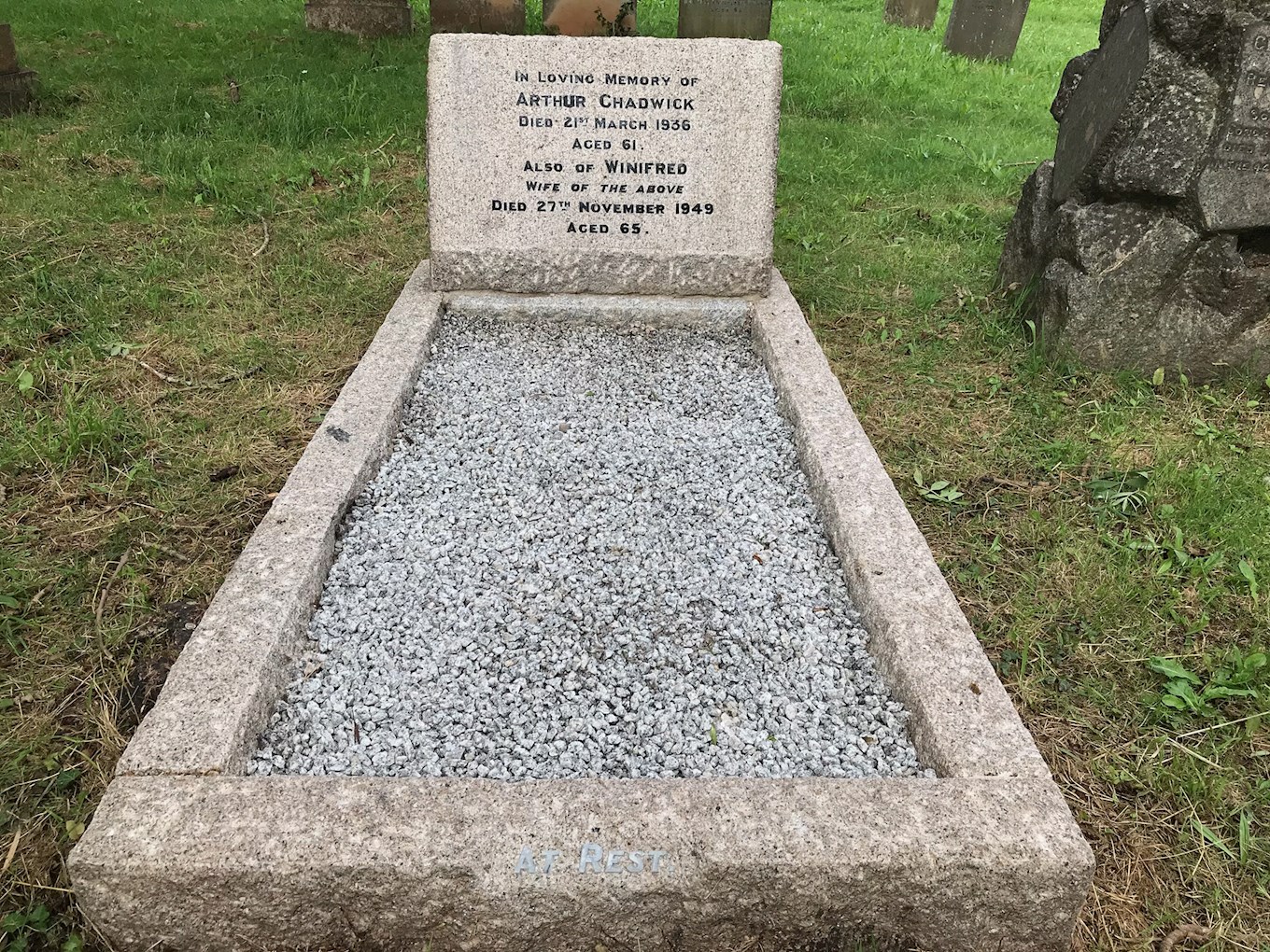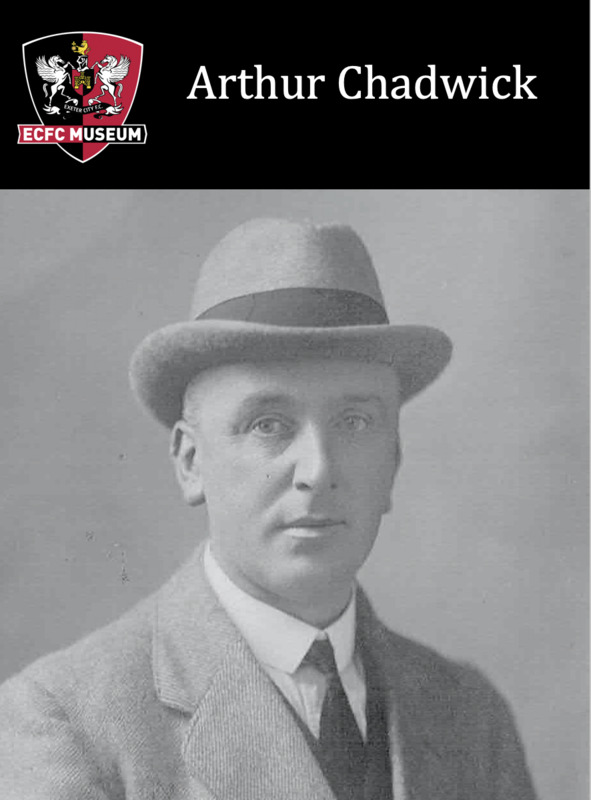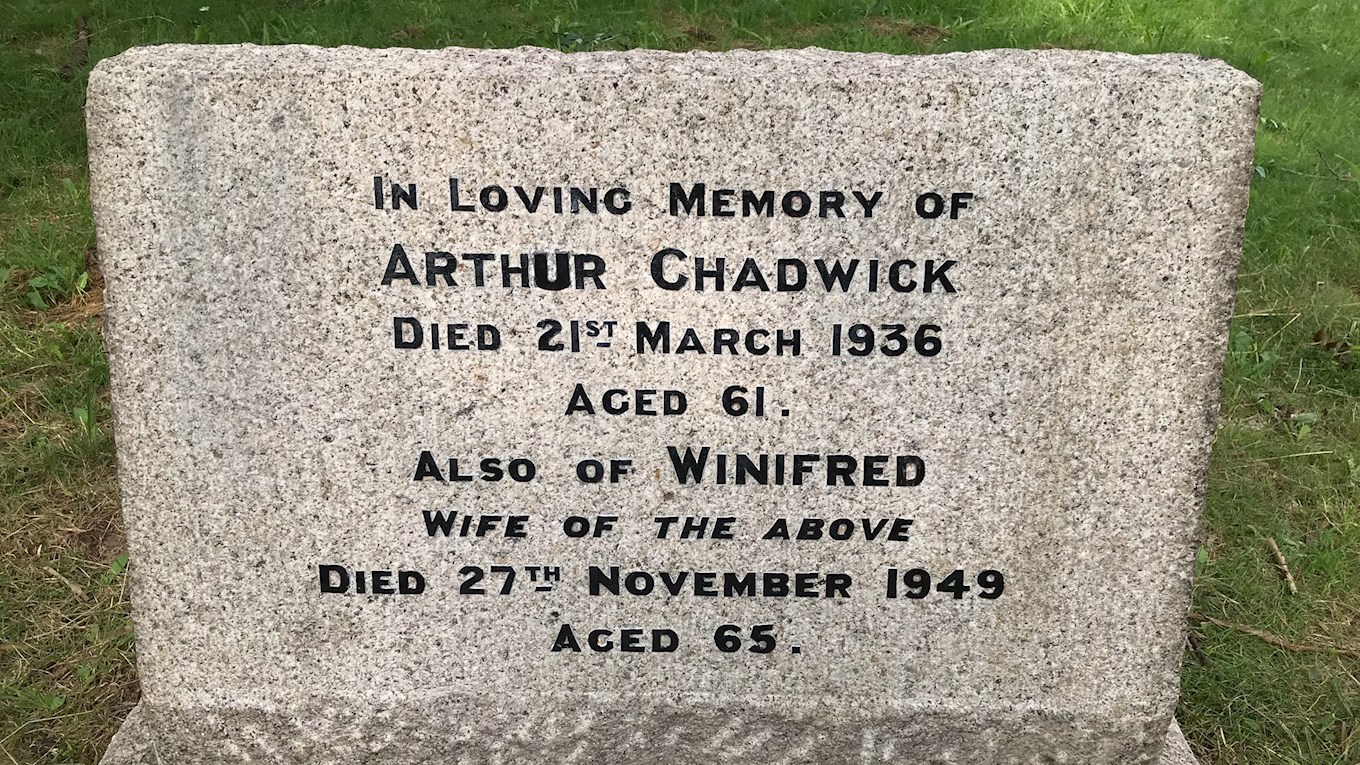Thanks to a series of generous donations Exeter City Football Club Museum has been able to restore the dilapidated and overgrown grave of its longest serving and first ever professional manager , Arthur Chadwick.
The refurbishment of the grave in Higher Cemetery, Heavitree was completed to mark the centenary of the end of Exeter City’s first ever season in the Football League in 1920/1. Chadwick was manager for this historic year for the Club.


A Lancastrian, Chadwick was an outstanding player winning several Southern League titles while at Southampton and Portsmouth, playing in the 1900 Cup final and making two appearances for England.
But it was as a player manager that Exeter City enticed Chadwick to Devon in 1908. The club had just turned professional and joined the highly competitive Southern League. He scored on his debut for the Grecians but hung up his boots in 1910 to focus on management. And when later that year City decided to give up their original colours of green and white, it was probably Chadwick’s connection with Southampton that led to the choice of red and white vertical stripes.
He had a very long association with the Club guiding it through the First World War and into the Football League. He finally stood down in December 1922 before going on to manage at both Reading and his old playing Club Southampton.
After retiring from football in 1931, Chadwick still kept an eye on Exeter City. And it was at St James Park in March 1936 that he died in the old Grandstand watching The Grecians playing Clapton Orient.

After discovering that his grave had deteriorated the new Exeter City FC Museum agreed to try and raise the funds to restore it. Three Exeter City Supporter Groups, Grecian Goal, Cans4City and the Senior Reds all made generous donations.
And in a similarly kind gesture a further donation was received from Southampton Football Club for whom Chadwick had been such an important early player and later manager.
The link between Exeter City and Southampton was not the first. Norman Kendall, a City Director during the Chadwick years, had moved to Devon from Southampton where he closely followed the emergence of St Mary’s Young Men’s AFC who evolved into Southampton. Later George Reader, who refereed the 1950 World Cup Final, would move to Southampton in 1920 after playing well for Exeter against the Saints.
The donations enabled the Exeter City FC Museum to engage Fine Memorials of Heavitree Road, Exeter to carry out the refurbishment of the grave. These grave restoration specialists had also restored the Higher Cemetery grave of City player John Dockray – a member of Chadwick’s Football League team.
“We are delighted to have been able to restore Arthur Chadwick’s grave” said Paul Farley Chair of the Exeter City FC Museum Trust. “He is a legend at the Club and at Southampton so it was upsetting to see his grave in disrepair. Now thanks to the generous donations from three of our Exeter City supporter groups and from Southampton we have paid our respect to a great player and manager”.

